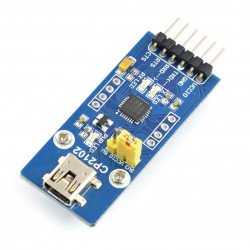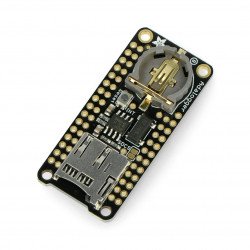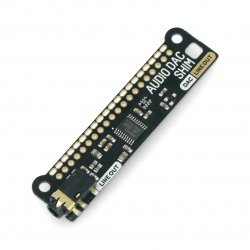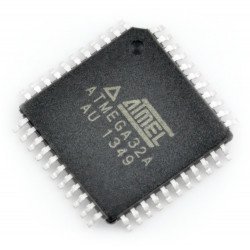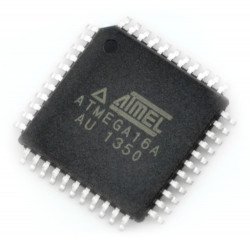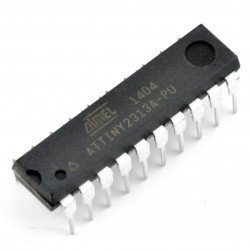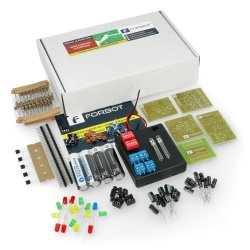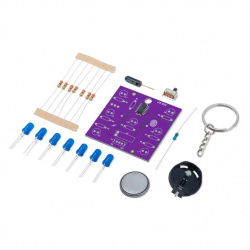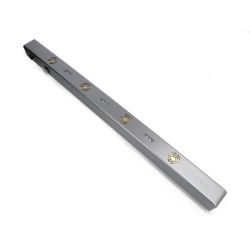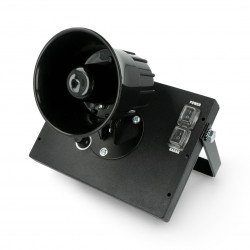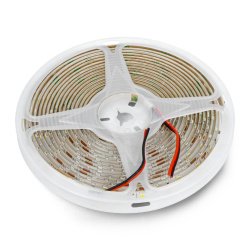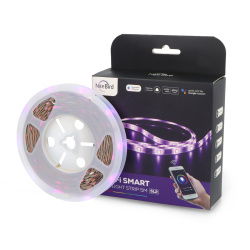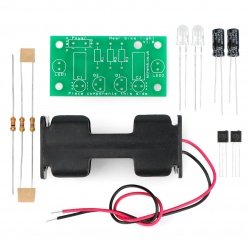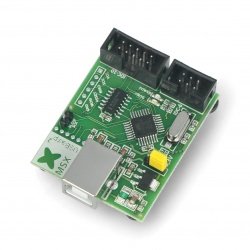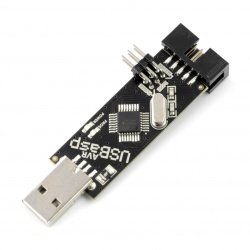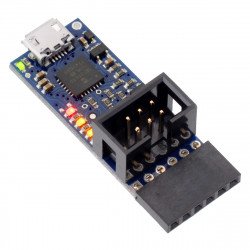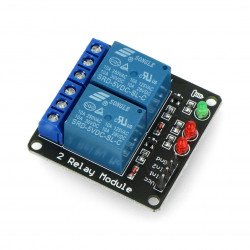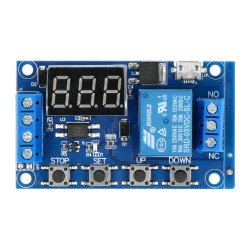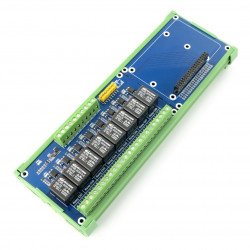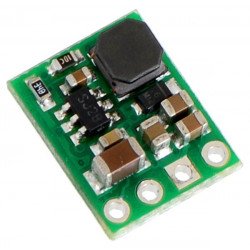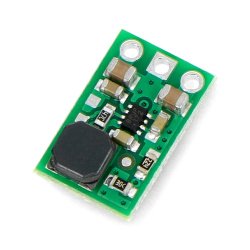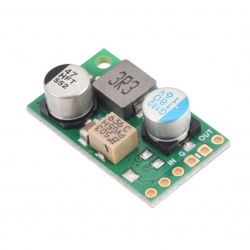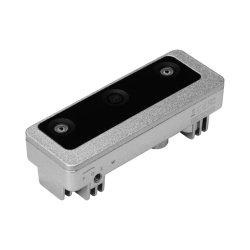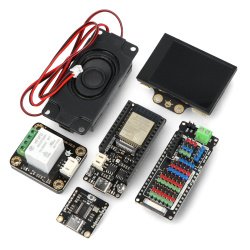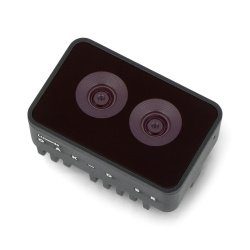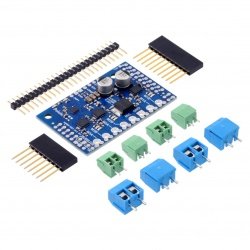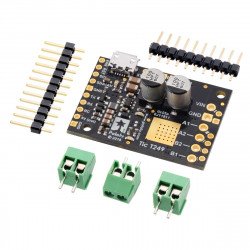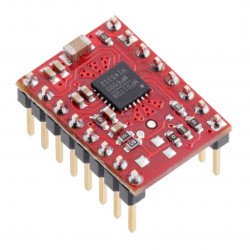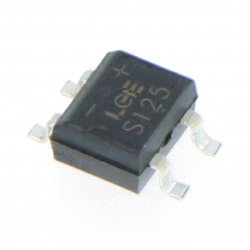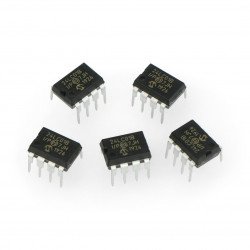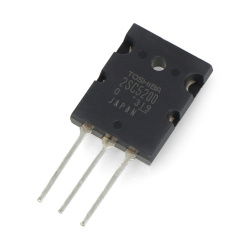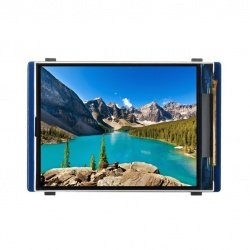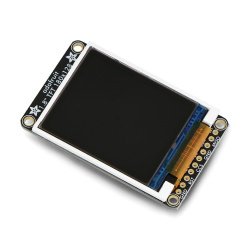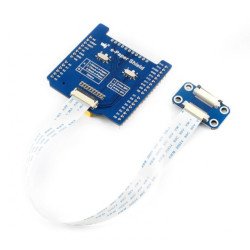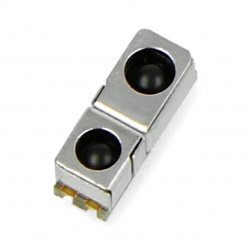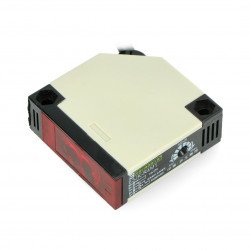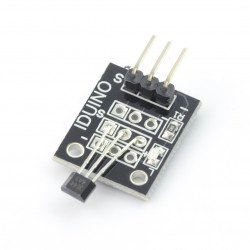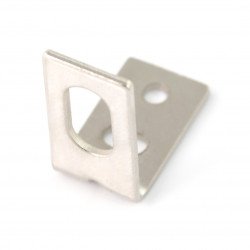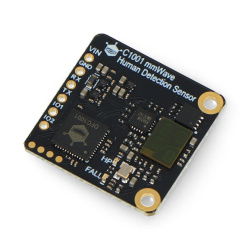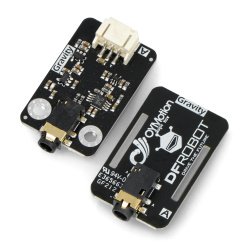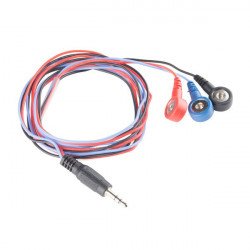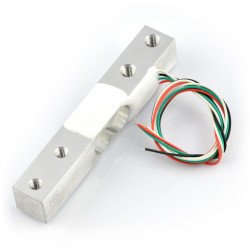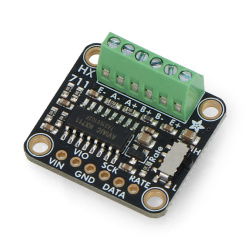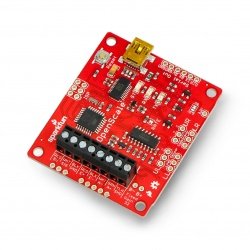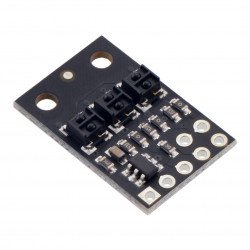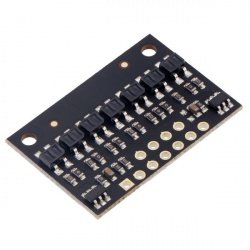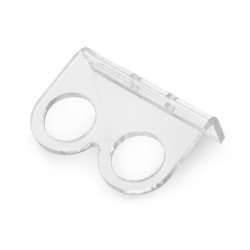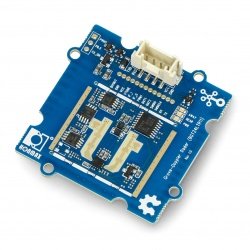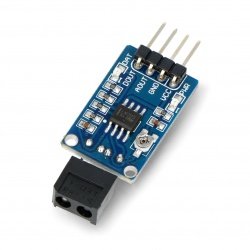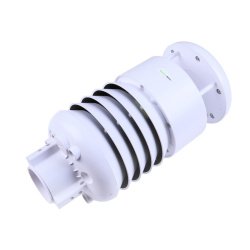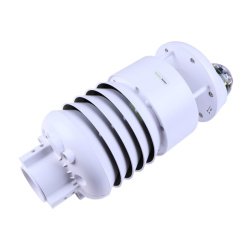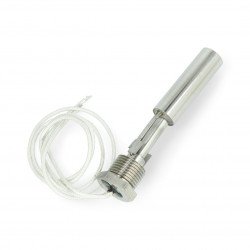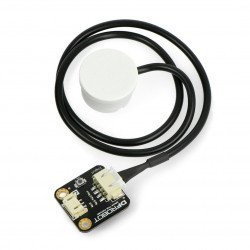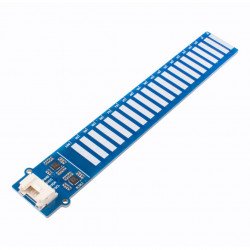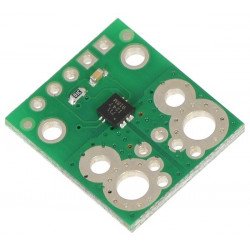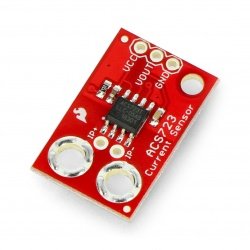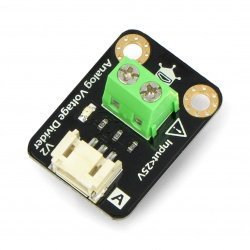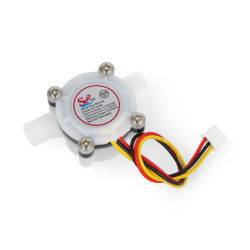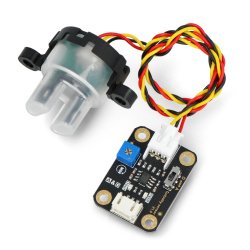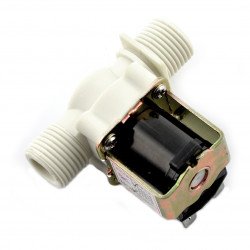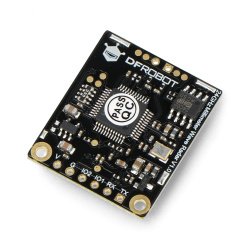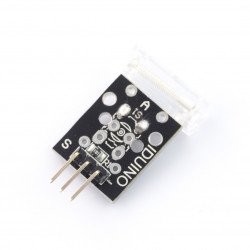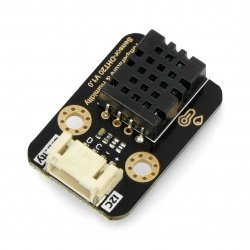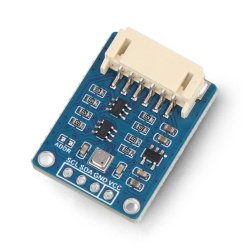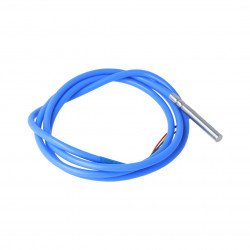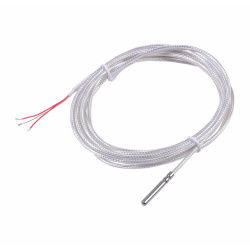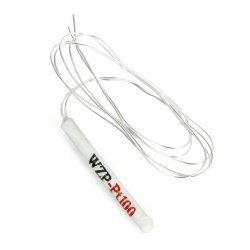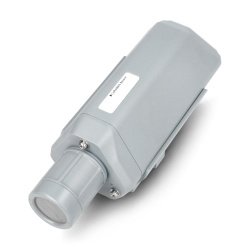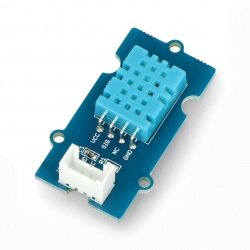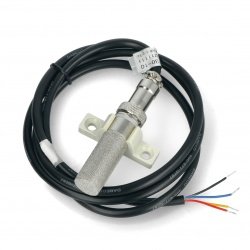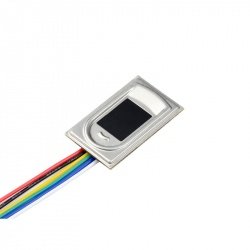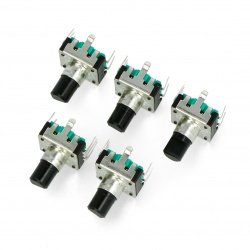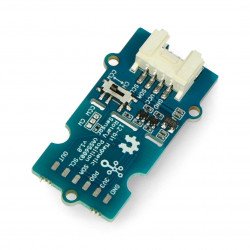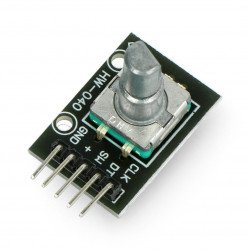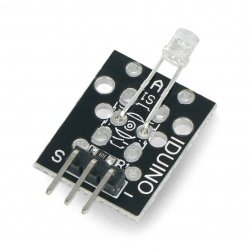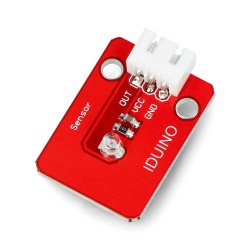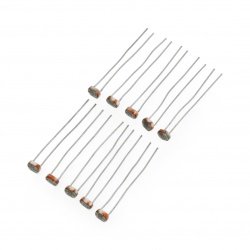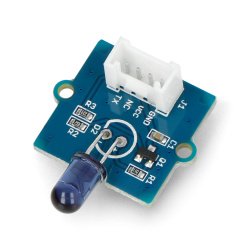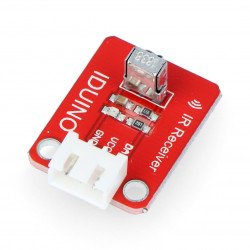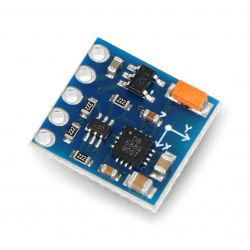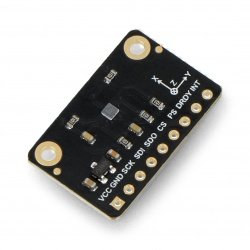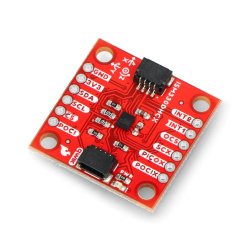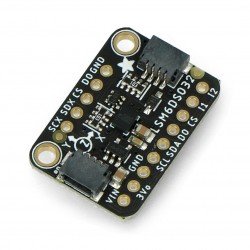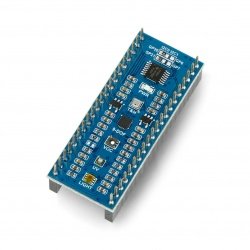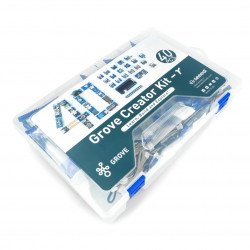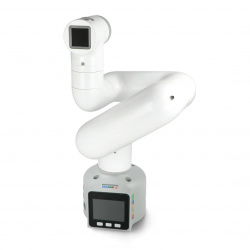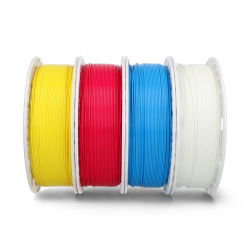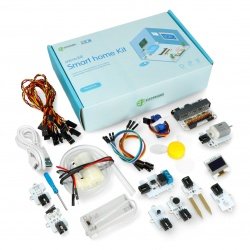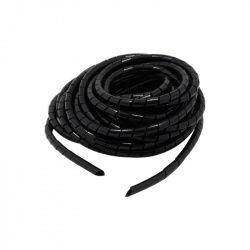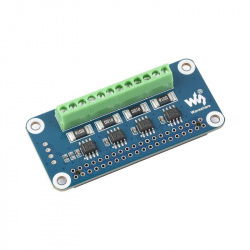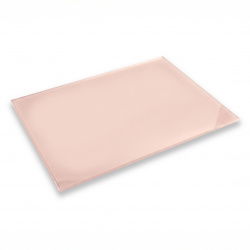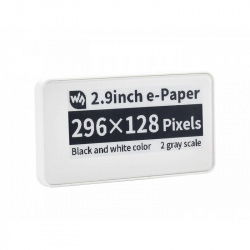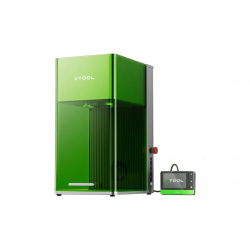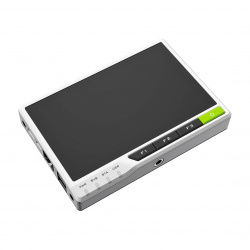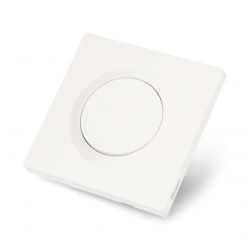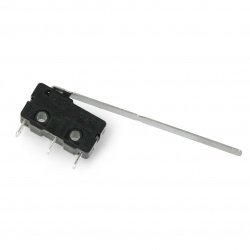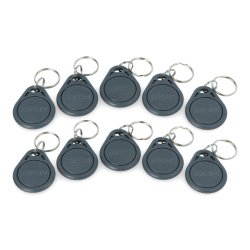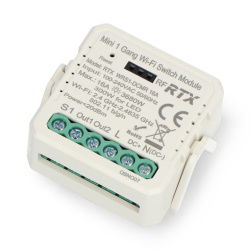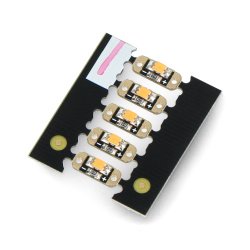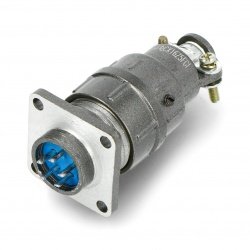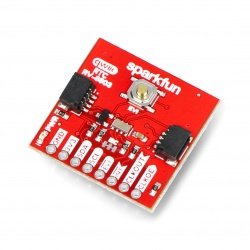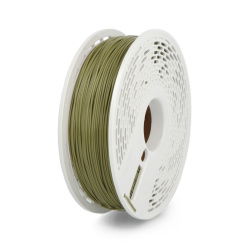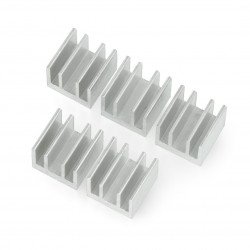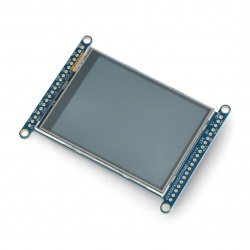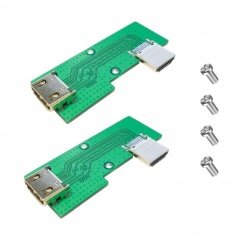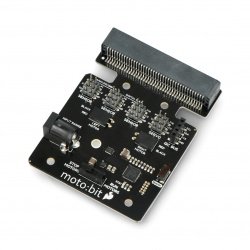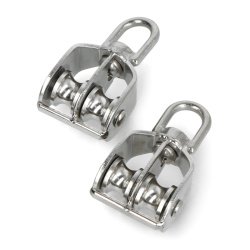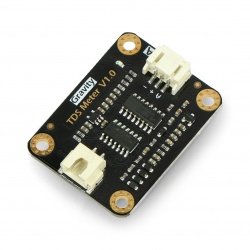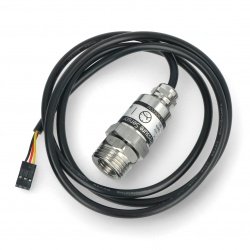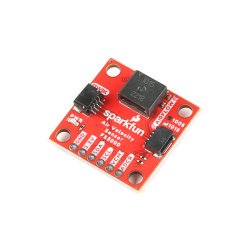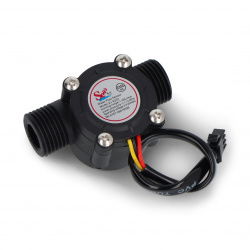A flow meter is a measuring device that measures the quantities of liquids and gases. Such meters are useful in home applications, also when making various own DIY projects, and find industrial use. Some flow sensors measure the amount of gas or liquid flowing over a certain period of time - this can be 1 L / min or another value. In turn, other flow meters are equipped with functions that allow counting the amount of gas or liquid that has flowed through the test organ of the sensor. Then, on the analog counter or LCD display, you will find information about the air flow in a given amount of liquid. In this category you will find the best gas and liquid flow meters. You can use them for various purposes. In our store's offer you will also find sensors for measuring the pH of the liquid (neutral, acidic, alkaline), as well as checking to what extent the liquid is clean.
Flow sensors
DFRobot Gravity - analog sensor of TDS, purity of water for Arduino
Analog TDS sensor compatible with Arduino, it is used for measuring the hardness and the purity of water. It can be used to test the quality of water in households, hydroponic...Liquid flow sensor YF-G1 100l/m - 1''thread
Sensor of liquid flow operating in the range from 2 to 100 liters per minute. Is supplied with the voltage from 3,5 V to 24 V, the output signal is a frequency proportional to...Gravity - analog water pressure sensor - DFRobot SEN0257
Analog sensor designed to measure water pressure, manufactured by DFRobot. It uses a 3-pin Gravity interface. The supported input voltage (standard) is 5 V , and the...Liquid flow sensor FS300A 60l/min - thread 3/4''
A liquid flow sensor operating in the range of 1 to 60 liters per minute. It is powered by a voltage of 3.5 V to 24 V, and the output signal is a frequency proportional to the...DFRobot Gravity - analogue turbidity sensor
Sensor for testing the quality of water by measuring its turbidity. Operates at 5 volts at temperatures from -30°C to 80°C.Air Velocity Sensor Breakout - Air Flow Sensor - FS3000-1015 - Qwiic - SparkFun SEN-18768
The Air Velocity Sensor Breakout from SparkFun is a module that allows you to measure the speed of air flow in the range from 0 m/s to 15 m/s (0 mph to 33.6 mph). It is...DFRobot - 12V Solenoid Valve 1/2"
The enables the control of the liquid flow using a computer or microcontroller. The valve is supplied with the voltage of 12 V. It is closed to connect the power supply of 12...Liquid flow sensor YF-S402 6l / min - M11x1,25mm thread
Sensor of liquid flow operating in the range from 0.3 to 6 liters per minute. Is supplied with the voltage from 3,5 V to 24 V, the output signal is a frequency proportional to...Liquid flow sensor ZJ-S201 30l/m - thread 1/2''
A liquid flow sensor operating in the range of 1 to 30 liters per minute. It is powered by a voltage of 3.5 V to 24 V, and the output signal is a frequency proportional to the...See also
- Twilight sensors
- Tilt sensors
- Accelerometers
- Inductive sensors
- Hall effect sensors
- Oxygen sensors
- Optical sensors
- Resistance sensors
- Door sensors
- Piezoelectric sensors
- RPM sensors
- Alarm sensors
- 9DoF IMU sensors
- Pressure sensors
- Air quality sensors
- Sound sensors
- Gesture sensors
- Gas sensors
- Limit switches
- Sensors of light and color
- Magnetic sensors
- Medical sensors
- Pressure sensors
- Sensors odbiciowe
- Distance sensors
- Inductive contactless sensors
- Weather sensors
- Liquid level sensors
- Current sensors
- Motion sensors
- Temperature sensors
- PT100 temperature probes
- Humidity sensors
- Fingerprint readers
- Encoders
- Photoresistors
- Phototransistors
- IR receivers
- Magnetometers
- Gyros
- Sensor sets
- Grove modules
- Gravity modules
How does an electromechanical liquid flow sensor work?
The testing organ of the flow sensor is a small turbine with blades and a Hall sensor. As liquid flows through the sensor, the pressure of the liquid (e.g. water) exerts pressure on the turbine blades, causing them to rotate. A stationary magnet is mounted on the turbine shaft. As the turbine rotates, the magnet on the shaft passes the stationary sensor element, which results in the creation of an alternating magnetic field, which creates a small voltage. The voltage generated in the Hall sensor is converted into a pulse that is counted by the measuring system, which allows obtaining information about the amount of liquid flowing through the sensor via the measurement algorithm. The same operating principle is used in hydroelectric power plants when checking the operating parameters of water turbines before they are coupled with power generators and connected to the power grid.
Liquid and gas flow sensors - ideal for cooperation with embedded systems
The Botland store offer includes a number of modules and attachments that can be easily connected to microcontrollers, creating an extensive measurement system. Among them, there are also sensors for measuring the flow of liquids and gases, such as the YF-G1 sensor, which allows measuring the amount of liquid in the range from 2 to 100 l/min. The measurement method uses the Hall effect. The sensor connector has three wires - red for connecting the auxiliary power supply voltage in the range from 5V to 24V, black wire for power supply ground and yellow wire responsible for transmitting measurement pulses. The sensor can work with, among others: with the Arduino platform.
Flow sensors - Botland - Shop for robotics
This category includes reliable and precise gas and liquid flow sensors, e.g. water, from manufacturers such as DFRobot, Seeedstudio, SparkFun and others. We offer, among others: analog flow sensors operating in various measurement ranges. The sensors placed on the board have clearly marked pins. In practice, this means easy and intuitive connection, e.g. to Arduino or other microcontrollers. Individual flow meters differ from each other, among others: thread diameter, permissible pressure, humidity and other parameters.
Flow sensors - FAQ
Yes, the liquid flow sensor can be connected to SUPLA . You can find ready-made guides online that explain step by step how to connect a flow sensor to SUPLA.
When choosing a meter intended for measuring liquid flow, special attention should be paid to the operating range, which may be expressed, for example, in liters for each minute of sensor operation. Other important factors are: supply voltage range, operating temperature range, mounting method, maximum liquid flow pressure and permissible humidity. Additionally, when choosing a sensor, you should take into account the sensor's size, shape, and mounting method. Selected models also enable measurement of the PH of liquids and even measurement of gases.






















































































